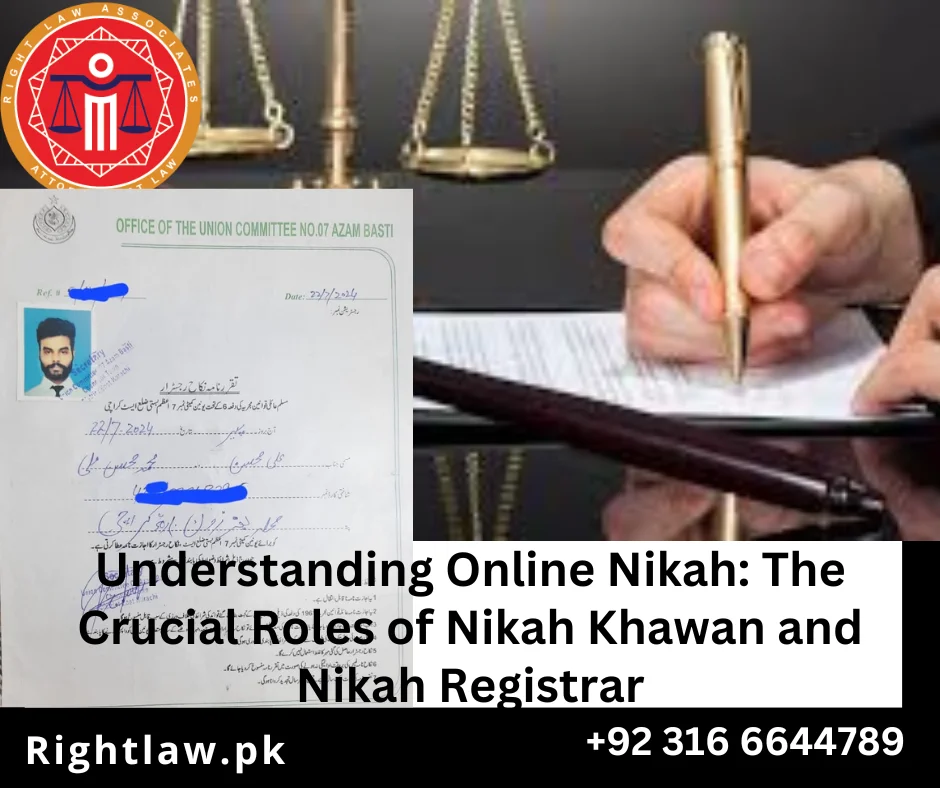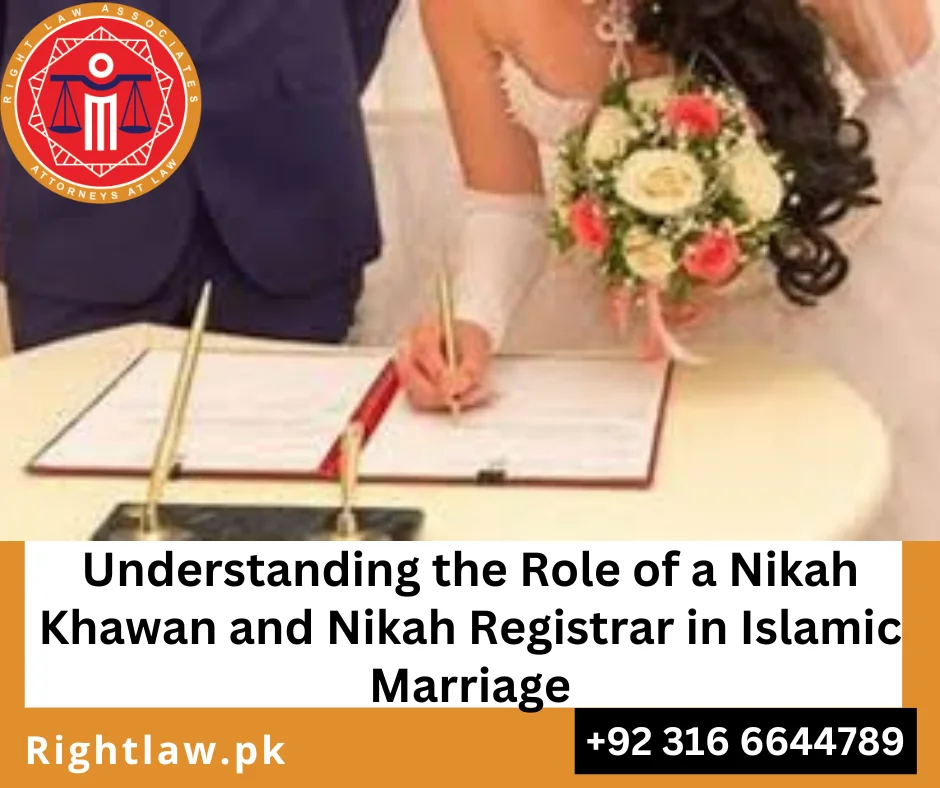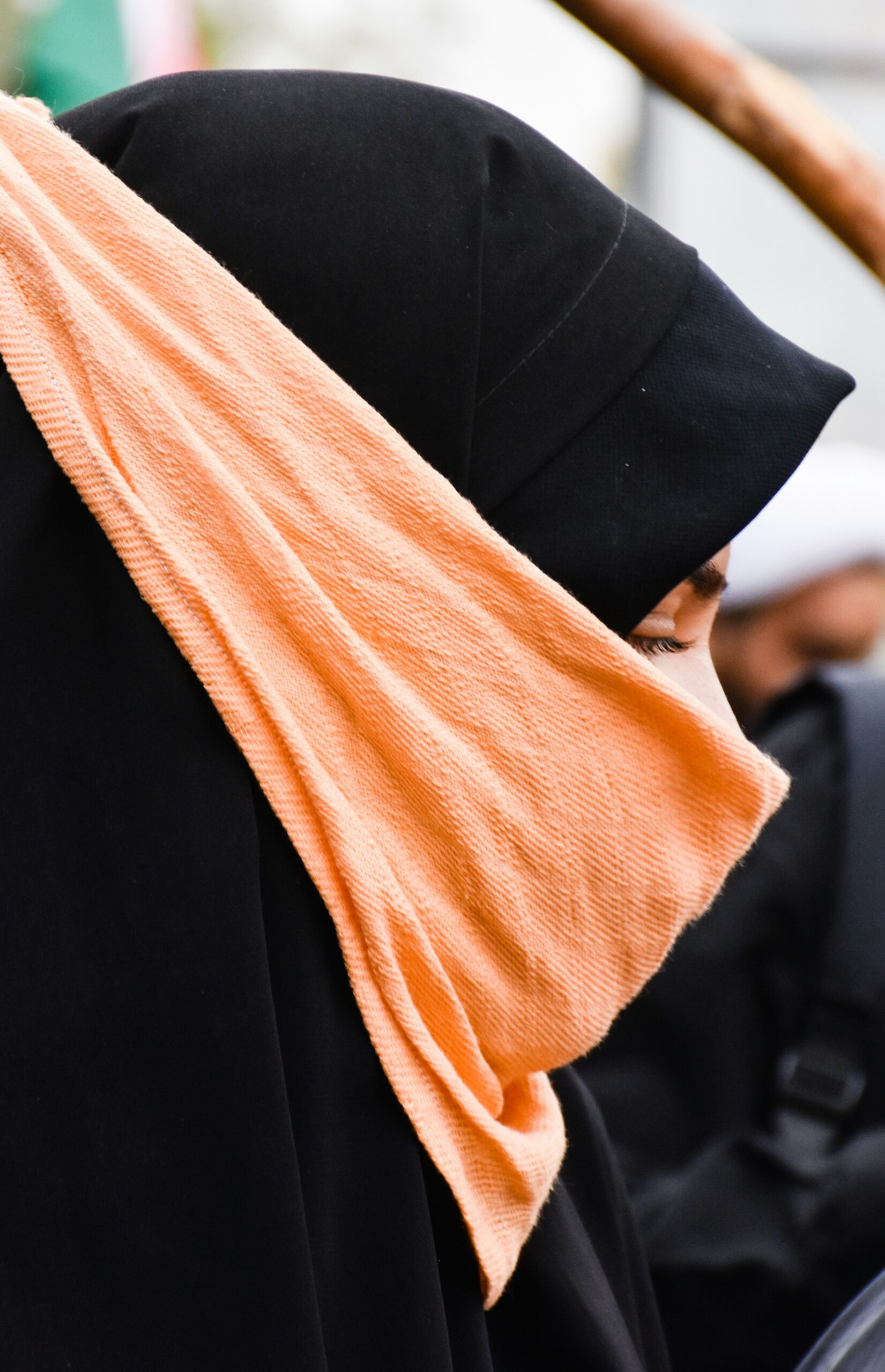
Online Marriage in Islam: Legality and Acceptance in Pakistan
Introduction to Online Marriage in Islam
Marriage in Islam is not merely a contract; it holds profound spiritual significance and is considered a sacred bond governed by the principles of faith, mutual respect, and legal obligations. The Quran elucidates the importance of marriage as a means of fulfilling one’s nature, procreating, and fostering companionship. Traditionally, marriage in Islam has specific prerequisites, including the proposal (nikah) and acceptance, the presence of witnesses, and the stipulation of a dowry (mahr). These elements ensure that the union is both valid and respected within the community.
Embracing Tradition in the Digital Age: The Rise of Online Marriage in Islam
With the advent of technology, the landscape of marriage has evolved significantly. The rise of online platforms has introduced a modern twist to the traditional approach. Online marriage in Islam, while incorporating traditional values, allows individuals to connect and interact in a digital space that transcends geographical boundaries. This shift facilitates the matchmaking process through websites and mobile applications, which have become popular among young Muslims seeking compatibility based on shared values and beliefs.
Online Marriage: Bridging Tradition and Technology in Islamic Matrimony
As digital platforms become integral to contemporary society, they are increasingly being recognized in Islamic marriage practices, especially in regions like Pakistan where traditional match-making stands alongside modern convenience. The growing acceptance of technology in the marriage process is seen as a way to streamline communication and enhance the selection of potential spouses. This integration reflects not only adaptive practices within the community but also signifies the acceptance of online marriage in Islam as a legitimate avenue for fulfilling the religious and social obligations associated with marriage.
In this context, it is crucial to explore how these innovations align with religious teachings and community values, which will further guide individuals considering online marriage avenues while remaining anchored in their faith.
Islamic Principles of Marriage
Marriage holds a fundamental place in Islam, often viewed as a sacred contract that serves both spiritual and social purposes. According to Islamic teachings, marriage is not merely a legal bond; it is a profound commitment between two individuals. This relationship is built on mutual rights and responsibilities, to provide companionship, stability, and an environment for family growth. The significance of marriage in Islam is deeply rooted in various Qur’anic verses and Hadiths that emphasize its importance for both individuals and society as a whole.
Essential Conditions for a Valid Islamic Marriage: Consent, Intention, and Capacity
For a marriage to be deemed valid in Islam, several key conditions must be satisfied. First and foremost, the intention behind the union must be pure, aligning with the religious directive of seeking a lawful partnership. Additionally, both parties must possess the capacity to enter into a marriage, which includes being of sound mind and having reached the appropriate age. Consent is paramount, as both partners must agree to the marriage freely and willingly, without coercion. This respect for autonomy underlines the ethical foundation of marital relationships in Islamic tradition.
The Role of Witnesses and Mahr in Validating Online Marriage in Islam
Witnesses play a crucial role in the legitimacy of a marriage contract (Nikah). Islamic law necessitates the presence of at least two witnesses during the ceremony, signifying the public nature of the union and ensuring accountability among the parties involved. The marriage contract itself encapsulates the agreed-upon terms and conditions, including the provision of a mahr (dowry), which serves to protect the rights and responsibilities of both husband and wife. Understanding these principles lays the groundwork for examining how online marriage in Islam can be reconciled with traditional practices, ensuring that the essential tenets of Islamic marital law are upheld in the digital age.
Legitimacy of Online Marriage in Islamic Jurisprudence
The advent of technology has prompted discussions around the legitimacy of online marriage in Islam. As digital means of communication become increasingly prevalent, Islamic scholars have begun to examine whether traditional guidelines for marriage can be applied to these modern practices. The core principle in Islamic marriage is the consent of both parties, which remains unchanged whether the marriage is conducted face-to-face or through an online platform.
Consent, Communication, and Witnesses: Validating Online Marriage in Islamic Jurisprudence
Islamic jurisprudence emphasizes the importance of clear communication and mutual agreement between spouses. Scholars argue that the essential elements of a valid marriage, namely consent, the public declaration of the union (which could be achieved in various ways even in an online context), and the presence of witnesses, can also be fulfilled through digital means. For instance, if both parties express their agreement verbally or through written communication in a digital format, and if witnesses are present during the virtual ceremony, the marriage may be considered legitimate.
Navigating Scholarly Opinions: Validity and Challenges of Online Marriage in Islamic Law
However, there are differing opinions among scholars regarding certain aspects of online marriage. Some maintain that the lack of physical presence may hinder the authenticity of consent or create complications in upholding marital rights and responsibilities. Others emphasize the need for adequate representation during the ceremony, where a reliable individual acts on behalf of either party, ensuring the sanctity and comprehensiveness of the online marriage process.
Embracing Modernity: Ensuring the Legitimacy of Online Marriage in Islamic Jurisprudence
Ultimately, the legitimacy of online marriage in Islam hinges not only on adhering to traditional requirements but also on embracing modern interpretations that can accommodate the realities of contemporary society. By establishing clear guidelines that honor both Islamic tenets and the advancements in communication, Islamic jurisprudence can facilitate the acceptance of online marriage as a legitimate practice within the faith.
Is Online Marriage Allowed in Islam?
The advent of technology has brought forth numerous changes in the way individuals interact and build relationships. One pertinent question that arises in this context is the permissibility of online marriage in Islam. Scholars from various Islamic schools of thought have engaged in discussions regarding this modern phenomenon, examining its compatibility with Islamic principles. In exploring whether online marriage is allowed, it is essential to consider the fundamental requirements of a valid marriage contract in Islam, which typically includes mutual consent, the presence of witnesses, and a formal declaration known as the ‘Nikah’ ceremony.
Differing Scholarly Views on the Legitimacy of Online Marriage in Islam
Respected Islamic authorities have articulated differing opinions on the subject. Some scholars argue that online marriage is permissible, provided that all essential elements of a traditional marriage are upheld during the virtual interaction. This perspective emphasizes the importance of ensuring that both parties give clear consent and that witnesses are present, even if they are convened via video conferencing. Furthermore, the significance of maintaining the sanctity and integrity of the marriage remains paramount, even in an online setting.
Traditional Concerns vs. Modern Realities: The Debate on Online Marriage in Islam
On the other hand, some traditionalists express reservations concerning online marriage due to the lack of face-to-face interaction, which they believe is crucial for establishing trust and familiarity between the couple. They argue that the absence of a physical presence may hinder the authenticity of the marital bond. Despite these concerns, the core Islamic tenets regarding marriage do not necessarily limit how a couple chooses to initiate their union, especially in an age where digital interactions have become commonplace.
Navigating Online Marriage in Islam: Legal and Religious Considerations for Couples
Ultimately, the question of whether online marriage is allowed in Islam cannot be definitively answered without considering individual circumstances, intentions, and the diligent observance of Islamic guidelines. As discussions on this topic continue to evolve, it is vital for potential couples to consult knowledgeable scholars to navigate the nuances involved in online marriage in Islam.
The Legal Framework for Online Marriage in Pakistan
The legal status of online marriage in Pakistan is underpinned by several laws that govern marital unions, primarily the Muslim Family Laws Ordinance of 1961 and the Dissolution of Muslim Marriages Act of 1939. These acts provide a necessary framework for legitimizing marriage proceedings, including the potential for technology-mediated unions. Within this legal context, online marriage in Islam is a developing area that necessitates compliance with existing laws while adapting to contemporary practices.
Ensuring Legality of Online Nikah in Pakistan: Witnesses, Consent, and Mehr
The Pakistani legal system recognizes the importance of witnessing and consent in marriages. Traditionally, an Islamic marriage, or Nikah, requires the presence of two witnesses, the consent of both parties and the offering of a Mehr (dower money). The essence of these stipulations remains essential, even in the realm of online marriage. Therefore, for a marriage conducted online to be legally binding, it must adhere to the procedural requirements as outlined by the Marriage Act, ensuring that witnesses can affirm their presence, albeit digitally.
Navigating the Legal and Islamic Aspects of Online Marriage
Furthermore, the integration of technology into marital practices has prompted debates among legal scholars and Islamic jurists regarding its adherence to Islamic principles. Some argue that online marriage in Islam should reflect the same obligations and rights as traditional marriages, emphasizing the necessity of proper documentation, including a digital Nikah Nama (marriage contract) that outlines the terms agreed upon by both parties. However, interpretations may vary, and it is pivotal for couples pursuing online marriage to seek clarity from qualified legal authorities or Islamic scholars to ensure compliance with the nuances of the law.
Evolving Legal Framework for Online Marriages in Pakistan: Aligning with Islamic Traditions
While the legal framework for online marriages in Pakistan is evolving, it necessitates adherence to established laws governing marriage within the Islamic tradition. The successful integration of digital platforms in marriage processes hinges on the understanding and implementation of these laws, thereby fostering acceptance in society.
Challenges and Concerns of Online Marriage
Online marriage in Islam introduces several challenges and concerns that must be acknowledged by individuals considering this modern approach to matrimonial arrangements. One primary issue is the authenticity of the individuals involved. In a physical space, the opportunity for direct interaction and social verification is present, but in a digital context, the risks of misrepresentation heighten. Individuals can often present misleading or fabricated identities, leading to situations where one party may not genuinely commit to the marriage, risking emotional and financial repercussions for the other.
Mitigating Risks of Fraud in Online Marriages: Importance of Verification and Caution
Additionally, the risk of fraud is a significant concern within the realm of online marriage. There have been numerous reports of scams where individuals exploit vulnerable populations by pretending to seek marriage, only to solicit money or personal information. Consequently, a robust verification process is essential to mitigate these risks. Prospective partners should engage in thorough research, including background checks and video calls, to ensure they are entering into a sincere partnership.
Navigating Cultural and Familial Challenges in Online Marriages within Islamic Communities
Cultural acceptance and family approval also pose challenges in the Islamic context when it comes to online marriages. While many Muslim communities are becoming increasingly open to digital matchmaking, traditional views often still influence perceptions of legitimacy. Families may express concerns about a spouse they have not met in person, leading to potential familial conflicts or rejection. Furthermore, misunderstandings that can arise from digital communication may exacerbate these issues, as nuances can easily be lost in text-based conversations.
Building Trust and Understanding in Online Marriages within Islamic Contexts
In light of these concerns, individuals must approach online marriage in Islam with a clear understanding of the potential risks and the importance of maintaining open communication. By addressing these challenges thoughtfully, couples can work towards building a foundation of trust and understanding that may help them navigate the complexities associated with digital matrimonial processes.
Guidelines for Conducting an Online Marriage
Engaging in an online marriage in Islam involves adhering to specific guidelines to ensure that the union is both valid and recognized within Islamic law. The first essential step is obtaining clear and mutual consent from both parties intending to marry. Consent is a fundamental aspect of any Islamic marriage; thus, both individuals must express their agreement unequivocally, ensuring that the process is free from any coercion.
Ensuring Validity in Online Marriages: The Role of Witnesses in Islamic Nikah Ceremonies
Next, the presence of witnesses is crucial in validating the marriage. Islamic teachings emphasize the necessity of having at least two impartial witnesses present during the nikah ceremony. In the context of online marriage, provisions should be made for these witnesses to be present virtually, whether through video conferencing or another reliable technology that allows their participation.
Ensuring Compliance in Online Marriages: The Importance of Qualified Officiants in Islamic Nikah Ceremonies
The nikah ceremony should be conducted by a qualified and authorized individual, preferably an Islamic scholar or an imam who has the authority to officiate marriages. This step guarantees that the marriage procedures comply with Islamic principles and fulfill the requirements outlined in religious texts. It is advisable to verify the credentials of the individual conducting the ceremony and ensure that they are recognized as a legitimate authority within the community.
Choosing Ethical Platforms for Online Marriages: Upholding Islamic Values and Providing Support Services
Moreover, individuals considering online marriage should utilize reliable platforms that prioritize Islamic values and maintain a high standard of ethics. These platforms can provide resources, such as pre-nikah counseling and support services, to assist couples in understanding their obligations and responsibilities within the marriage. It is prudent for potential spouses to research various options available to them, focusing on services that emphasize adherence to Islamic laws.
By following these guidelines, individuals can navigate the process of online marriage in Islam more effectively, ensuring their union is both meaningful and compliant with religious norms.
Navigating the Future of Online Marriage in Islam
In summarizing the discourse surrounding online marriage in Islam, it becomes evident that this topic is marked by both complexity and an evolving understanding within various cultural contexts, notably in Pakistan. The technological advancements that have ushered in online platforms for marital introductions and negotiations pose new questions regarding the traditional tenets of marriage in Islam. These platforms not only facilitate connections but also challenge established norms, necessitating a nuanced approach that respects Islamic principles while embracing modernity.
The Legality of Online Marriage in Islam: Ensuring Compliance with Islamic Principles
The legality of online marriage in Islam, particularly in Pakistan, is influenced by diverse interpretations among scholars, legal authorities, and adherents of the faith. As highlighted, the significance of intention (niyyah) and adherence to the essential tenets of marriage remain crucial, regardless of whether the union is established online or offline. Those engaging in online marriage platforms must ensure they uphold the Islamic mandates for marital relationships, which include consent, transparency, and familial involvement.
Embracing Technological Advancements: The Evolving Landscape of Online Marriage in Islamic Communities
As society progresses, the adaptability of Islamic teachings ensures that the concept of marriage remains relevant. The increasing acceptance of online marriage reflects a broader dialogue among Muslims about how tradition can coexist with technological advancements. Engaging in further discussions and research on this topic is vital, as it allows for a deeper understanding of how online marriage can be both lawful and beneficial while remaining firmly rooted in the Islamic framework.
The Future of Online Marriage in Islam: Navigating Change and Tradition
With ongoing changes in societal norms and technological landscapes, the practice of online marriage in Islam is likely to further evolve. Thus, scholars, community leaders, and individuals must continue exploring this dynamic field, contributing to a well-informed and compassionate approach to marriage in modern Islamic contexts.

Online marriage in Pakistan refers to a legally recognized matrimonial process conducted remotely via digital platforms. With the assistance of our authorized legal professionals, the couple, witnesses, and Nikah Khawan connect through video conferencing to solemnize the marriage according to Islamic and Pakistani law.

